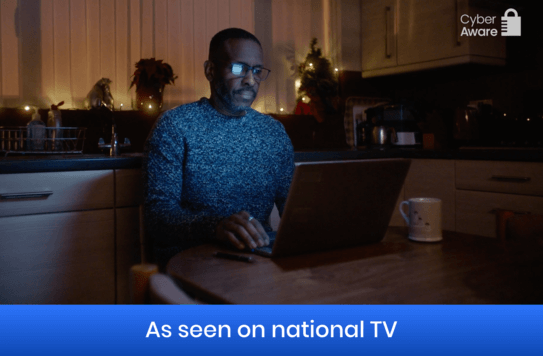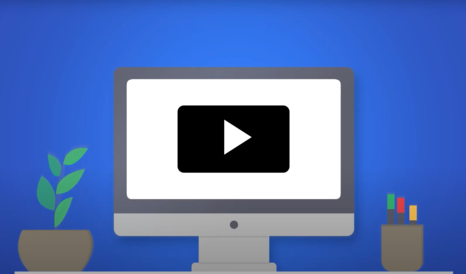Cyber Aware is the government’s advice on how to stay secure online.
Improve your online security today
From banking to shopping, and streaming to social media, people are spending more time than ever online.
This means more opportunities for hackers to carry out cyber attacks. They often do this by targeting people and businesses using:
- email and website scams
- malware – software that can damage your device or let a hacker in
If hackers get into your device or accounts, they could access your money, your personal information, or information about your business.

You can improve your cyber security by taking six actions:
- Use a strong and separate password for your email
- Create strong passwords using 3 random words
- Save your passwords in your browser
- Turn on two-factor authentication (2FA)
- Update your devices
- Back up your data
Get a personalised ‘to do’ list
Protect yourself or your business online with your free Cyber Action Plan – no sign up requiredStart now
Improve your password security
Creating strong, separate passwords and storing them safely is a good way to protect yourself online.Action 1
Use a strong and separate password for your email
If a hacker gets into your email, they could:
Using 3 random words is a good way to create a strong, unique password that you will remember.
You should also protect your other important accounts, such as banking or social media.How to change your email passwordAdvice on passwords for sole traders and small businesses
Why email is so important

Did you know?
If a hacker gets into your email, they could reset the passwords for your other accounts using the ‘forgot password’ feature.Action 2
Create strong passwords using 3 random words
When you use different passwords for your important accounts, it can be hard to remember them all.
A good way to create strong, memorable passwords is by using 3 random words.
Saving your passwords in your browser will help you manage them.
Test your knowledge
Which one of these passwords does notappear in the top 100,000 most compromised passwords?arsenal221v7Upjw3ntp@55w0rdRedPantsTreevictoria!20111977Action 3
Save your passwords in your browser
- make sure you do not lose or forget your passwords
- protect you against some cyber crime, such as fake websites
It is safer than using weak passwords, or using the same password in more than one place.
Make sure you protect your saved passwords in case your device is lost or stolen.How to protect your saved passwordsHow to save your passwords in your browser
Did you know?
You can access your saved passwords from any device where you are signed into the same browser.
Add extra protection
Once you’ve set up strong, separate passwords for all your devices and services, there are other things you can do to reduce your risk of being hacked.Action 4
Turn on two-factor authentication (2FA)
Some online banking uses 2FA automatically. It does this by asking for more information to prove your identity, such as a code that gets sent to your phone.How to turn on two-factor authentication (2FA)
How 2FA works

Update your devices
Some devices and software need to be updated manually. You may get reminders on your phone or computer. Do not ignore these reminders. Updating will help to keep you safe online.How to turn on automatic updates
Test your knowledge
How do companies fix weaknesses in their software?BandagePatchRepair
Make sure you can recover quickly
A cyber attack may mean you lose some or all of your data, such as pictures, documents, or financial or client information. Backing up regularly will help you get back on track.Action 6
Back up your data
If you back up your information to a USB stick or an external hard drive, disconnect it from your computer when a back up isn’t being done.How to turn on automatic backupAdvice on backups for sole traders and small businesses
Did you know?
You should always back up your data before updating your device.
This is because updates can sometimes remove or change files.
Get a personalised ‘to do’ list
Protect yourself or your business online with your free Cyber Action Plan – no sign up requiredStart now
More tips on how to stay safe online

Phishing: How to report to NCSC
Discover how to report potential phishing messages and websites to the NCSC.Learn moreShopping online securelyOur guidance will help you to avoid scam websites and purchase items safely.Read our adviceBack to top
.svg)
ABOUT NCSC
INFORMATION FOR…
- Individuals & families
- Self employed & sole traders
- Small & medium sized organisations
- Large organisations
- Public sector
- Cyber security professionals
ADVICE & GUIDANCE
EDUCATION & SKILLS
- Schools
- Higher education
- Professional skills & training
- Working with the NCSC
- CyBOK
- Research & Academia
- CyberFirst
PRODUCTS & SERVICES
- Overview
- Browse products & services
- Verify a supplier
- NCSC certification
- Evaluation partners
- Cyber Essentials
- Active Cyber Defence (ACD)
